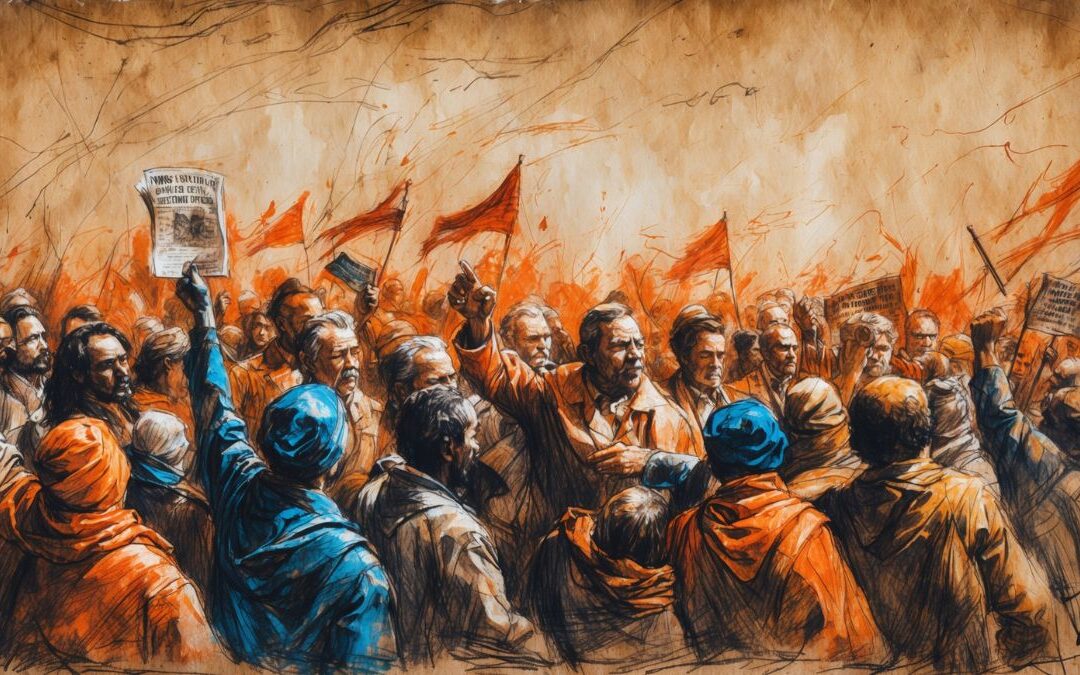Practice
Flashcards
Learn
Match
Spell
Test
Practice Worksheet
PDF Download Link
Transcript
The Church and the State
On the surface, the First Amendment to the Constitution seems simple and unambiguous. It appears to assert quite clearly that one’s religious faith is not and should not be interfered with by the government, and that the government should not support one religion over another. This principle is commonly referred to as “the separation of church and state.” Contrary to popular belief, however, those words do not appear in the Constitution.
The earliest European settlers came to America seeking freedom to worship as they saw fit. They had little forbearance, however, when it came to allowing others the same freedom. For example, in Massachusetts the Puritans forced Anne Hutchinson and Roger Williams to leave the colony because their beliefs differed from those of the established faith.
In most of the early colonies, religion was considered part of government. Not only was there no freedom to practice a differing faith, but the dominant religion of the colony encroached on every facet of one’s life. A man was not allowed to vote or hold office unless he was a member of the church. The governing bodies could impose taxes on all members of the community for the support of the church.
Given this history, one might wonder how the United States came to require the separation of church and state. Much happened between the arrival of the Pilgrims and the drafting of the Constitution more than 150 years later. As the population increased and roads became better people were less secluded. This meant that people of differing views might live close together. In addition, many later settlers came to make money rather than to practice their religious beliefs. By 1787 religion was no longer considered the government’s concern.
Even so, just how separate church and state are is a source of contention. In 1962 the Supreme Court decided that school prayer violated the First Amendment. Similar challenges have been leveled against town-sponsored Christmas displays and the phrase “under God” in the Pledge of Allegiance. Not everyone, however, agrees with these decisions. The meaning of the phrase “separation of church and state” is far from settled.
assert
If someone asserts a fact or belief, they state it firmly.
If you assert your authority, you make it clear by your behavior that you have authority.
If you assert your right or claim to something, you insist that you have the right to it.
contention
If something is a cause of contention, it is a cause of disagreement or argument.
dispute, hostility, disagreement, feuding
Someone’s contention is the idea or opinion that they are expressing in an argument or discussion.
contrary
If you say that something is true contrary to other people’s beliefs or opinions, you are emphasizing that it is true and that they are wrong.
at odds with, counter to, in opposition to
Ideas, attitudes, or reactions that are contrary to each other are completely different from each other.
dominant
Someone or something that is dominant is more powerful, successful, influential, or noticeable than other people or things.
main, chief, primary, outstanding
having primary control, authority, or influence; governing; ruling
encroach
If one thing encroaches on another, the first thing spreads or becomes stronger, and slowly begins to restrict the power, range, or effectiveness of the second thing.
to advance beyond the usual or proper limits
If something encroaches on a place, it spreads and takes over more and more of that place.
facet
A facet of something is a single part or aspect of it.
aspect, part, face, side
The facets of a diamond or other precious stone are the flat surfaces that have been cut on its outside.
forbearance
If you say that someone has shown forbearance, you admire them for behaving in a calm and sensible way about something that they have a right to be very upset or angry about.
self-control; patience
All the Greenpeace people behaved with impressive forbearance and dignity.
impose
If you impose something on people, you use your authority to force them to accept it.
If you impose your opinions or beliefs on other people, you try and make people accept them as a rule or as a model to copy.
If someone imposes on you, they unreasonably expect you to do something for them which you do not want to do.
secluded
A secluded place is quiet and private.
private, sheltered, isolated, remote
kept apart from the company of others
unambiguous
If you describe a message or comment as unambiguous, you mean that it is clear and cannot be understood wrongly.
not ambiguous; clear
The close-up photography and commentary are clear and unambiguous.











0 Comments